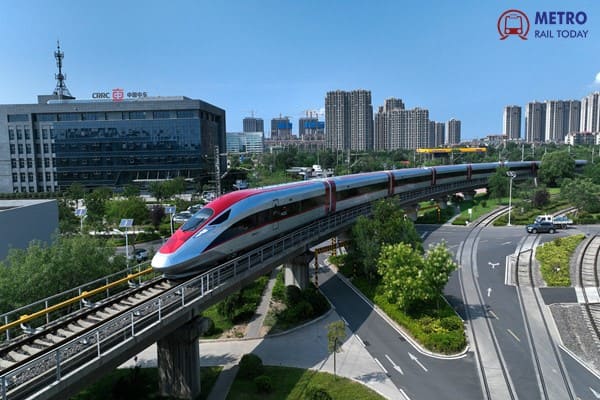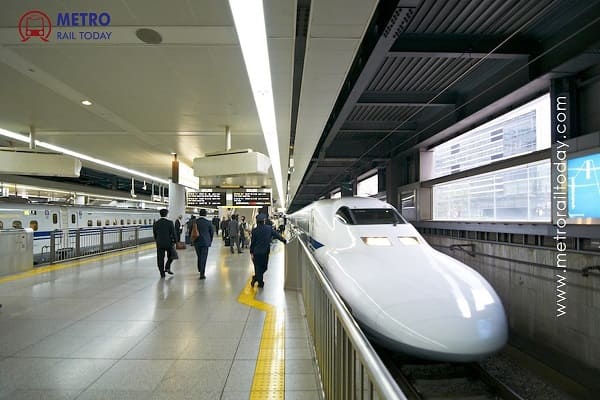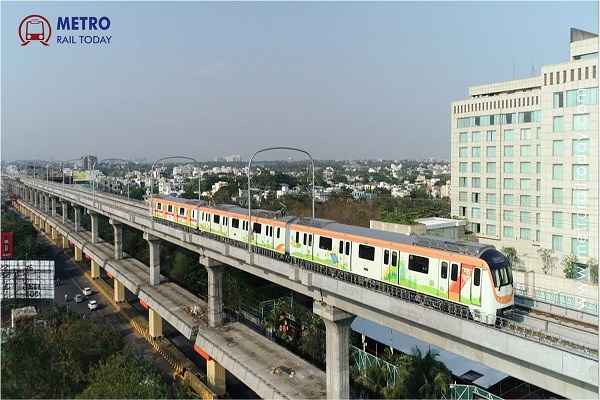 EIB approves €289.5 million loan for expansion of Nagpur and Pune Metro Rail Projects
EIB approves €289.5 million loan for expansion of Nagpur and Pune Metro Rail Projects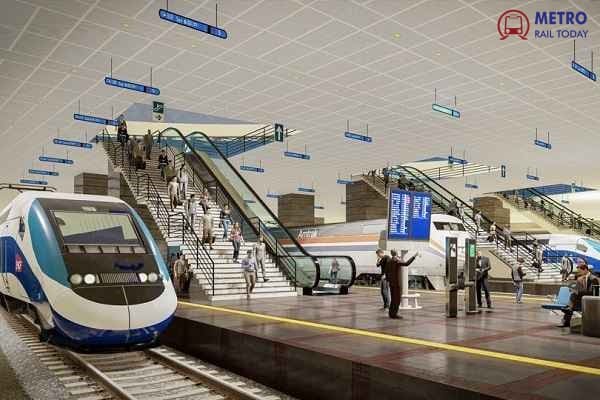 India is building Largest Railway Station in Amaravati - Know all about
India is building Largest Railway Station in Amaravati - Know all about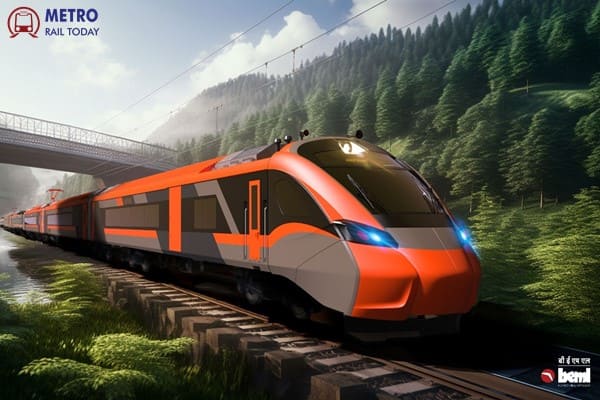 Kineco and BEML forge strategic partnership to strengthen indigenous composite manufacturing
Kineco and BEML forge strategic partnership to strengthen indigenous composite manufacturing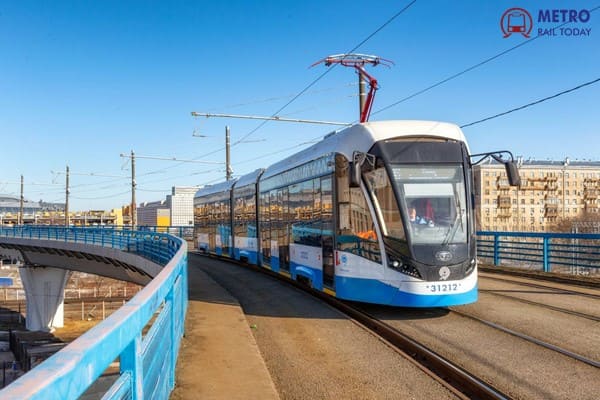 UN blacklists Spanish Trainmaker CAF over activities in Occupied Palestinian Territories
UN blacklists Spanish Trainmaker CAF over activities in Occupied Palestinian Territories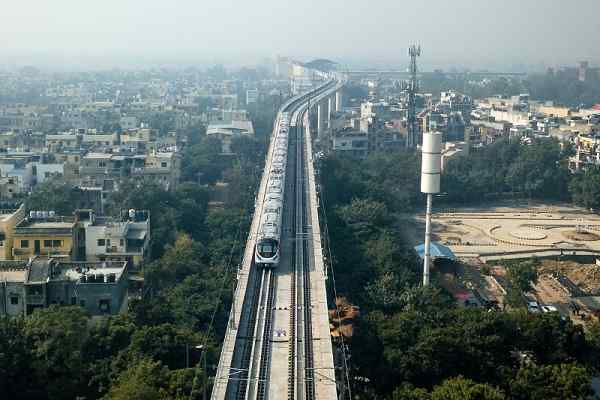 Prayagraj to get full-fledged Metro System, replacing the Metrolite Plan
Prayagraj to get full-fledged Metro System, replacing the Metrolite Plan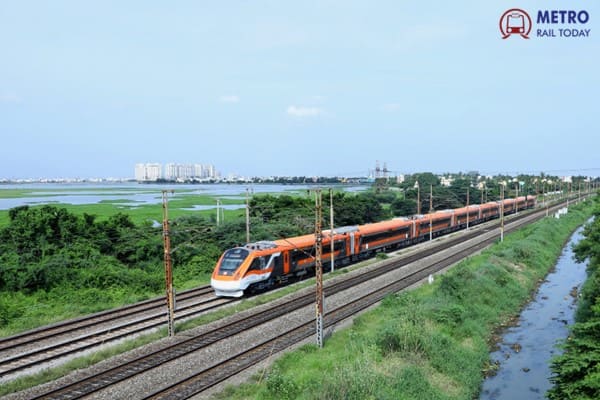 Sensonic & Skylark Drones Join Hands to Revolutionize Rail Infrastructure Monitoring
Sensonic & Skylark Drones Join Hands to Revolutionize Rail Infrastructure Monitoring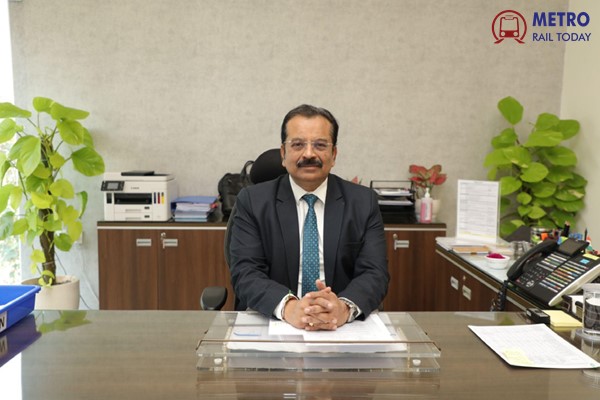 Namo Bharat: Driving India’s Transit Revolution with Sustainability and Seamless Connectivity
Namo Bharat: Driving India’s Transit Revolution with Sustainability and Seamless Connectivity RVNL - The Silent Engine Driving India’s Rail Infrastructure Boom
RVNL - The Silent Engine Driving India’s Rail Infrastructure Boom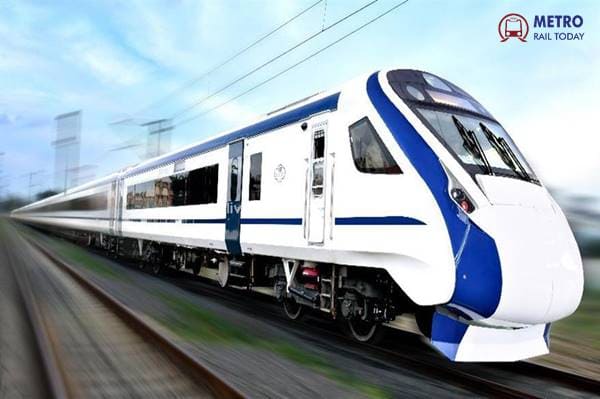 India to introduce 800 Vande Bharat Trains to redefine the future of Indian Railways by 2030
India to introduce 800 Vande Bharat Trains to redefine the future of Indian Railways by 2030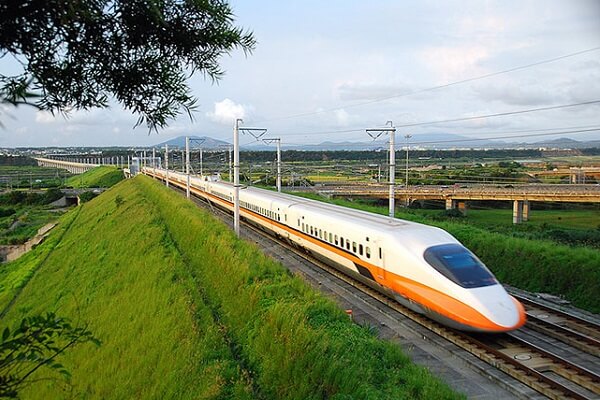 Indian Railways to develop 7,000 km of dedicated Passenger Corridors by 2047
Indian Railways to develop 7,000 km of dedicated Passenger Corridors by 2047
ICF set to manufacture High-Speed Trains capable of 250 kmph speed
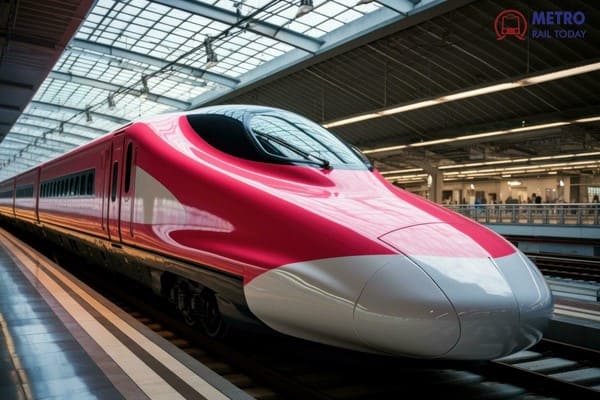
Chennai, India (Metro Rail Today): In a groundbreaking development for Indian Railways, the Integral Coach Factory (ICF) in Chennai has been tasked with a monumental project: to manufacture two high-speed trains capable of reaching speeds up to 250 km per hour. This ambitious endeavor is part of the Ministry of Railways' production program for 2024-25, as outlined in a directive from the Railway Board dated June 4.
The new high-speed trains, which will feature a steel body, are designed for a maximum speed of 250 km/h and a running speed of 220 km/h. Built on standard gauge—the most widely accepted gauge globally—these trains represent a significant leap in India's rail transport capabilities. The initiative builds on the Vande Bharat platform, which has already set a high benchmark in the nation's efforts to modernize its rail services.
The development of these high-speed trains is part of a broader strategy to enhance the speed and efficiency of the Vande Bharat fleet. Over the past year, significant progress has been made, including the construction of a test track for standard gauge trains in Rajasthan. This facility is crucial for testing and refining high-speed train technologies and also plays a key role in India's plans to export Vande Bharat trains.
Challenges and Opportunities
Despite the ambitious goals set by the Ministry of Railways, there are substantial challenges to overcome. The current top speed of Vande Bharat trains is 180 km/h. Achieving the target of 250 km/h by March 2025 is considered highly ambitious, if not unrealistic, by some industry experts. Sudhanshu Mani, the former General Manager of ICF who spearheaded the creation of the first Vande Bharat trains, expressed his concerns about the feasibility of such rapid development.
"The ICF can be motivated with a free hand and a committed leadership can take up this development over three to four years. If they succeed, it would be a very significant milestone. But issuing letters which merely put forward unrealistic targets is self-defeating," said Mani.
Technological Innovations
The success of this project will hinge on several technological innovations. The new trains will need to incorporate advanced engineering techniques to achieve the desired speeds while ensuring safety and reliability. This includes the development of aerodynamic designs, lightweight materials, and powerful propulsion systems. Additionally, the transition from broad gauge to standard gauge will require meticulous planning and execution.
Economic and Environmental Impact
The introduction of high-speed trains is expected to have a profound impact on India's economy and environment. Faster trains will reduce travel time significantly, enhancing productivity and connectivity across regions. Moreover, high-speed rail offers a more sustainable alternative to road and air travel, contributing to the reduction of carbon emissions and pollution.
To achieve these ambitious goals, the ICF is likely to seek collaborations with international experts in high-speed rail technology. Learning from countries that have already established successful high-speed rail networks, such as Japan, France, and China, will be crucial. These partnerships can provide valuable insights into the best practices and technological advancements necessary for developing world-class high-speed trains.
A Step Towards Modernization
The directive to manufacture 250 km/h trains aligns with the broader vision of modernizing India's rail infrastructure. This vision includes upgrading existing tracks, developing new routes, and incorporating state-of-the-art technologies. High-speed rail is seen as a catalyst for economic growth, urban development, and increased competitiveness on a global scale.
The Integral Coach Factory in Chennai has a storied history of innovation and excellence in train manufacturing. Established in 1955, the ICF has been at the forefront of developing and producing various types of rail coaches, including the highly acclaimed Vande Bharat Express. With its robust infrastructure and skilled workforce, the ICF is well-positioned to take on the challenge of developing high-speed trains.
Public and Private Sector Involvement
The success of this high-speed rail project will depend on the effective collaboration between the public and private sectors. While the government provides the necessary funding and regulatory support, private companies can contribute with their expertise, technology, and innovation. Public-private partnerships (PPPs) can play a pivotal role in accelerating the development and deployment of high-speed trains.
As the ICF embarks on this ambitious project, the coming months will be crucial. Detailed planning, rigorous testing, and continuous innovation will be required to meet the targets set by the Railway Board. The successful development of these high-speed trains will not only be a milestone for the ICF but also a testament to India's growing capabilities in advanced rail technology.
The directive from the Ministry of Railways to the Integral Coach Factory to manufacture high-speed trains capable of 250 km/h marks a significant step forward in India's journey towards modernizing its rail infrastructure. While the challenges are immense, the potential benefits in terms of economic growth, environmental sustainability, and technological advancement are equally substantial. With dedicated leadership, strategic planning, and international collaboration, this ambitious vision can become a reality, propelling India into a new era





